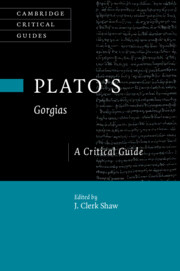Refine search
Actions for selected content:
5 results
14 - Maimonides on Worship, True and False
- from Part IV - Forms and Functions of Worship
-
-
- Book:
- The Philosophy of Worship
- Published online:
- 09 January 2025
- Print publication:
- 23 January 2025, pp 255-277
-
- Chapter
- Export citation
Chapter 10 - Revealing Commitments
-
-
- Book:
- Plato's Gorgias
- Published online:
- 25 May 2024
- Print publication:
- 30 May 2024, pp 193-213
-
- Chapter
- Export citation

Plato's Gorgias
- A Critical Guide
-
- Published online:
- 25 May 2024
- Print publication:
- 30 May 2024
3 - Rights and the Populist Claim for Recognition
-
- Book:
- Democratic Respect
- Published online:
- 16 March 2023
- Print publication:
- 23 March 2023, pp 87-115
-
- Chapter
- Export citation
Chapter 2 - Philosophy As a Way of Life in Thus Spoke Zarathustra
-
-
- Book:
- Nietzsche's ‘Thus Spoke Zarathustra'
- Published online:
- 09 June 2022
- Print publication:
- 23 June 2022, pp 41-61
-
- Chapter
- Export citation
